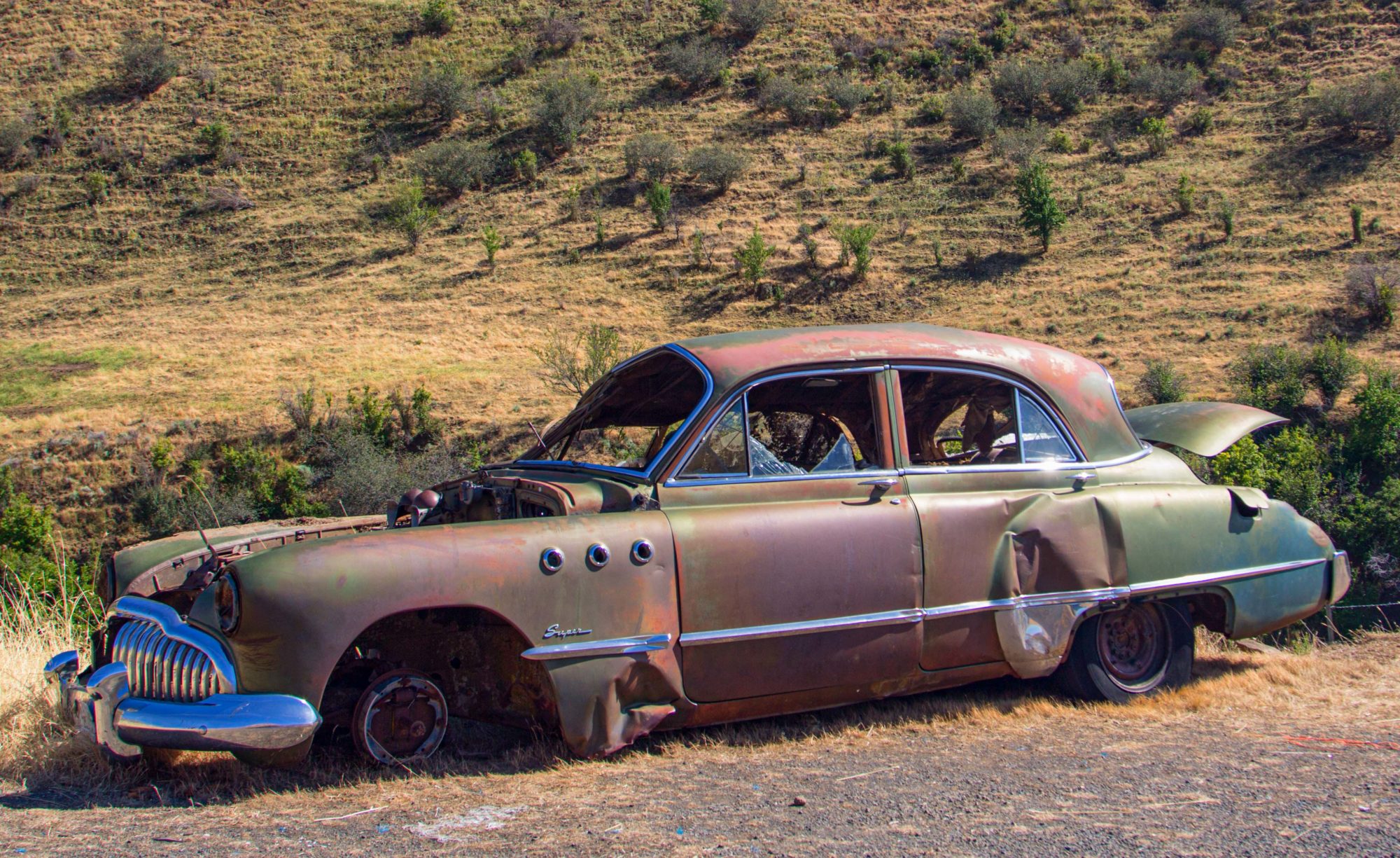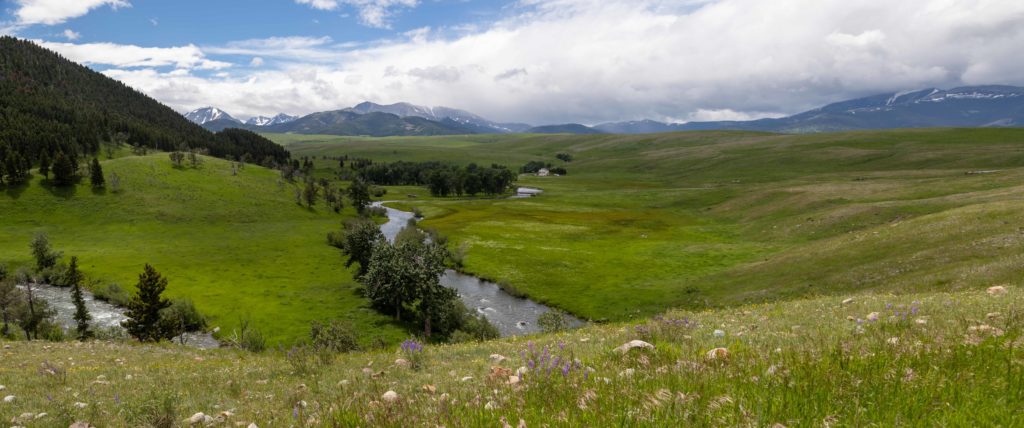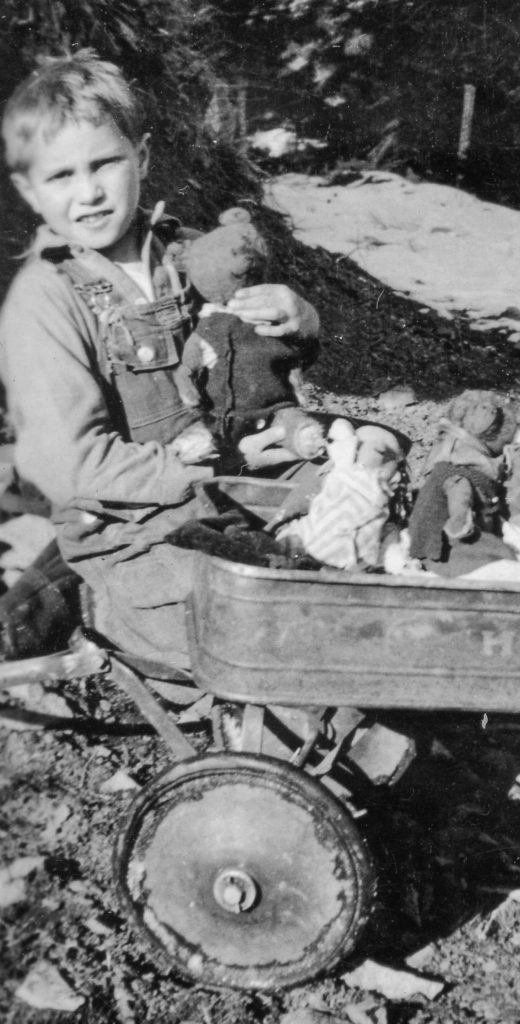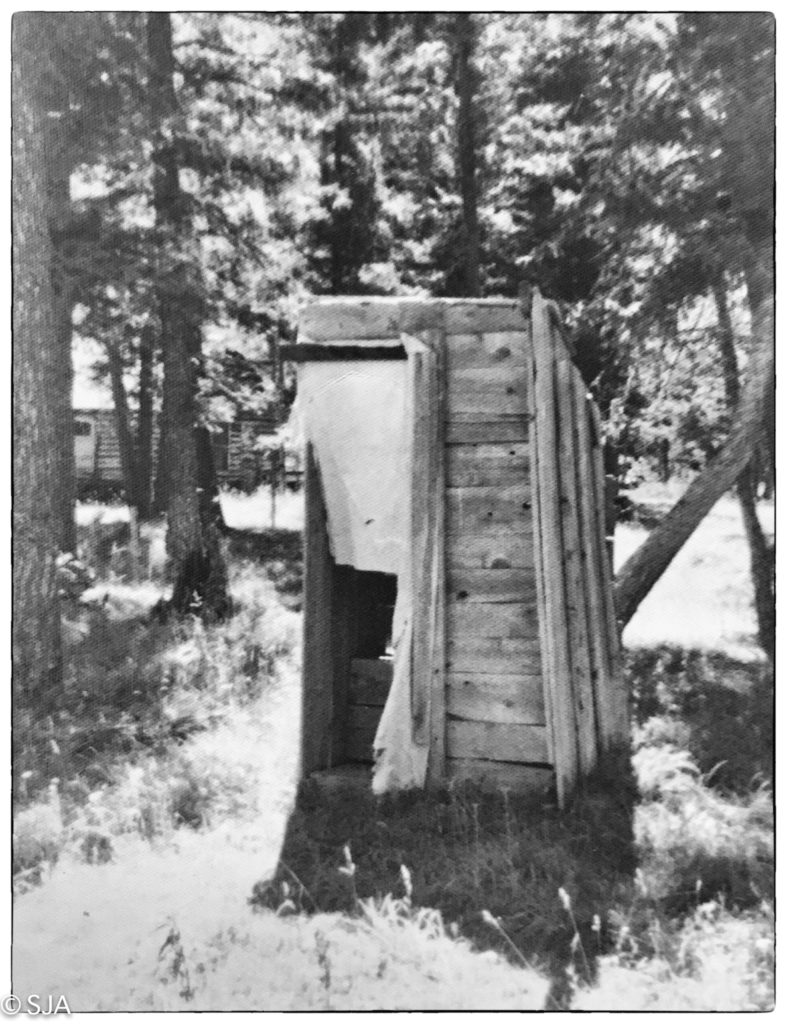The long trek from New Mexico to Montana had not been without hardship and loss for the Brannin family. Their bout with typhoid had lifelong effects, rendering the youngest son handicapped. Heading north from Annabella, Utah, where they had wintered, they were caught in a snowstorm that took about half of their goat herd.
Almost a year after their departure from their ranch along the Sapillo in New Mexico, they arrived at their Montana destination where two more children were added to the family. However, that was not the journey’s end.
One of the boys, Ed, and a friend rode into Sweet Grass Canyon in 1898 after checking out mining possibilities in Fergus County. The two young men on horseback followed the trail that led into the Crazy Mountains. As the trail began to descend, they rounded a hill, and it seemed as if a secret doorway opened in front of their very eyes. In the valley below, the river danced and sang a tune as it made its way from the mountains through the horseshoe bend and beyond. They had never seen such a view. Before them lay Sweet Grass Canyon. Immediately Ed knew that his family had to move to the heart of the mountains.
They crossed the river, and stopped to talk with C. M. Rein, a Norwegian man who had made his home there in 1893. The Reins became valuable neighbors and friends of the family for years to come. They also visited the Tucker family who lived on the Sweet Grass near Melville. The Tuckers, who they had known from Marysville, were more than friends, they became family as well.
After spending the winter in the Crazy Mountains of 1898-99, Ed made his way back to Silver City, Montana, to tell the family of the paradise he had seen. Upon his return, he encouraged the family to move to that paradise. Grandfather Brannin went to look it over, pulled up stakes in 1904, and made the move. Joe had his misgivings because it was too far from a school. Had the matriarch of the family known of future events, she might have had misgivings as well.
The youngest girl, Babe, remembered the trip, “Papa and Joe came to get us and take us to the Sweet Grass and the Crazy Mountains. Papa drove the spring wagon with Mamma, Sid, Bess, Crawford and me in it. Joe drove the lumber wagon and Will Smedley went along to help. I think Gus must have been with Dick over at the new place.” According to Sid, they camped the first night on the Missouri near Helena. The second night they camped along the trail and the third night near White Sulphur Springs. They traveled by way of Deep Creek Canyon and spent the fourth night in Martinsdale. The fifth night was on the Little Elk near Two Dot. When they passed the American Fork Ranch, they knew their destination was within reach.
As the wagons topped the rise and followed the trail into the valley, they saw the horseshoe bend of the Sweet Grass River. Looking into the canyon in front of them, they knew this was home. For the first time in her life, the matriarch felt safe and was no longer afraid to be alone. The mountains called her name, and she answered the call. With her back to the mountains and the valley before her, she found her place of refuge there in the heart of the mountains. She was finally home – a place of safety, surrounded by her family, and neighbors who needed one another.
Years later, Babe, the young one who rode in the spring wagon at five years old, said every time she came to that place at the horseshoe bend, she thought the same thing, “This is home.”
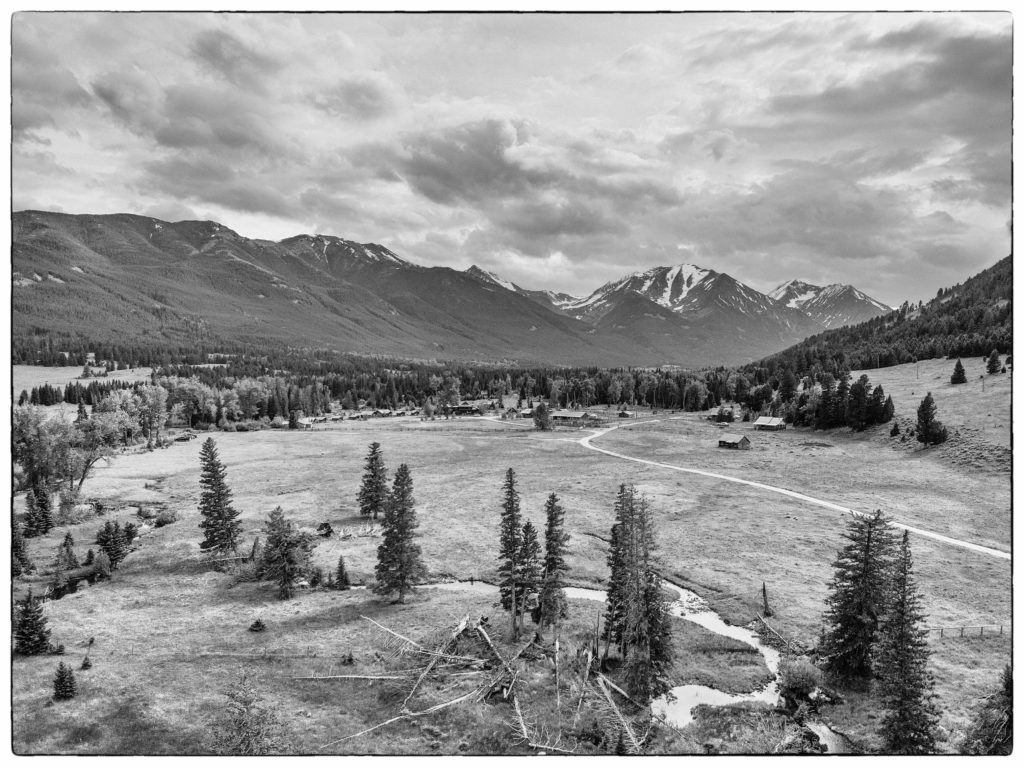
created by dji camera
